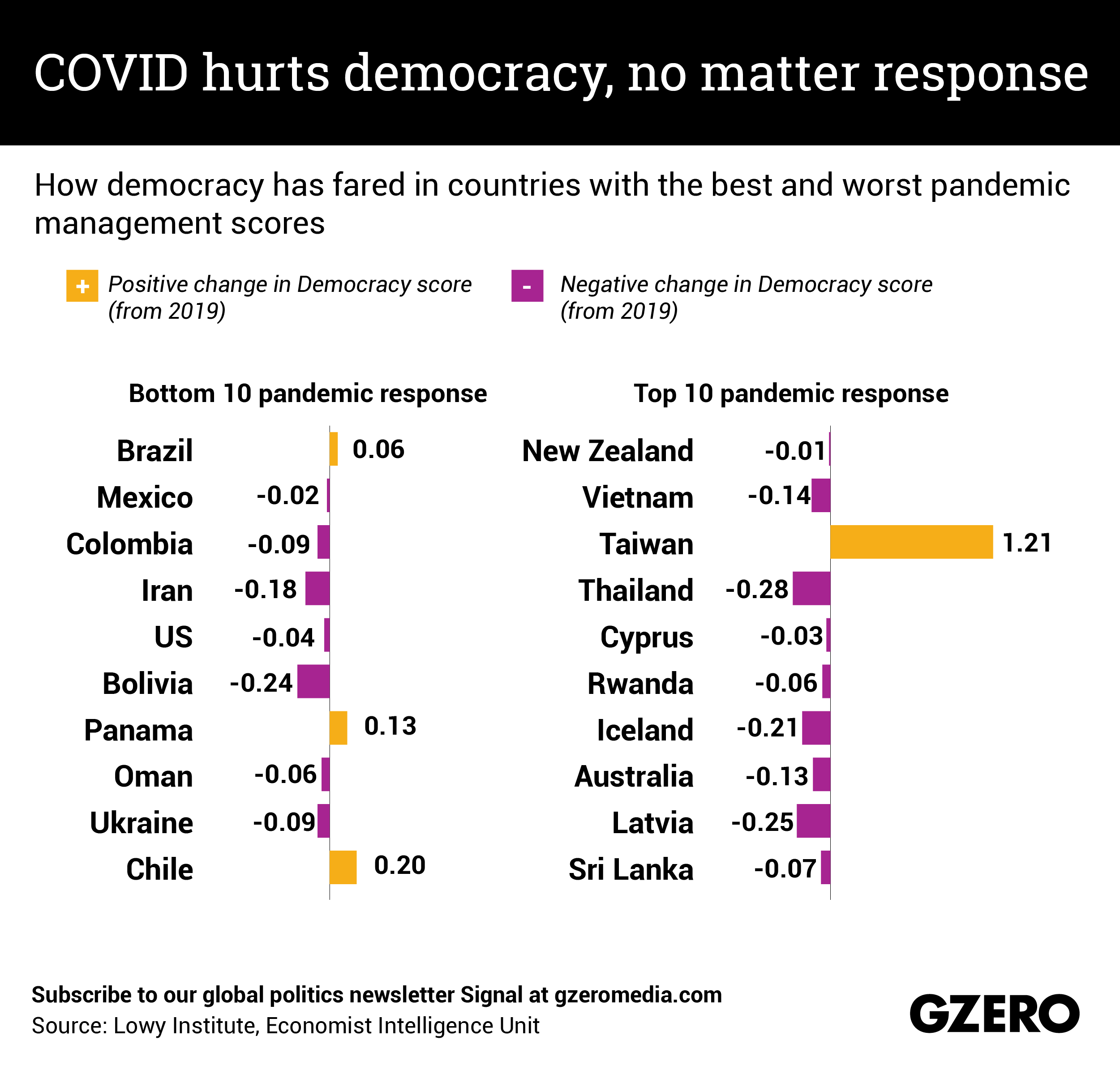The Graphic Truth: COVID hurts democracy, no matter response
February 11, 2021
Ari Winkleman
The strength of global democracy was tested by the coronavirus in 2020 — and COVID mostly won. The Economist Intelligence Unit's Global Democracy Index fell last year by an average 0.07 points, the biggest drop since the annual ranking was first compiled in 2006. Government-imposed restrictions on individual freedoms and civil liberties due to the pandemic are partly responsible for the decline, and this is true for a majority of countries regardless of how well they managed the pandemic. We take a look at how democracy performed in 2020 in the 10 countries that handled the pandemic best and in the 10 with the worst responses, as measured by the Lowy Institute.
